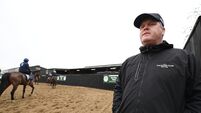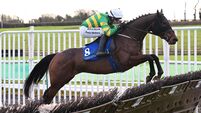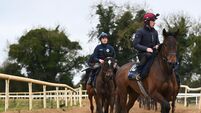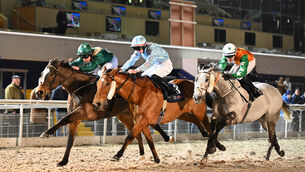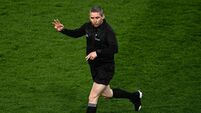Aidan O’Brien to take different approach with Air Force Blue for the Curragh

In our presence for two lots on a mild morning in Ballydoyle, one rogue dares step out of line – momentarily. It’s nothing really, hardly noticeable. Then back in line, and the serenity returns, the horses complete their warm-up, and head out of the barn, each rider having been greeted individually, and given instruction, via ear-pieces tuned to O’Brien’s open-channel walkie-talkie.
It’s all very inclusive, very fair, and open. The horses, all wearing heart monitors, walk to the bottom of the gallop and come up, as instructed. Despite our distance, the boss tells us which each is, often referring to them by their dam’s name.

